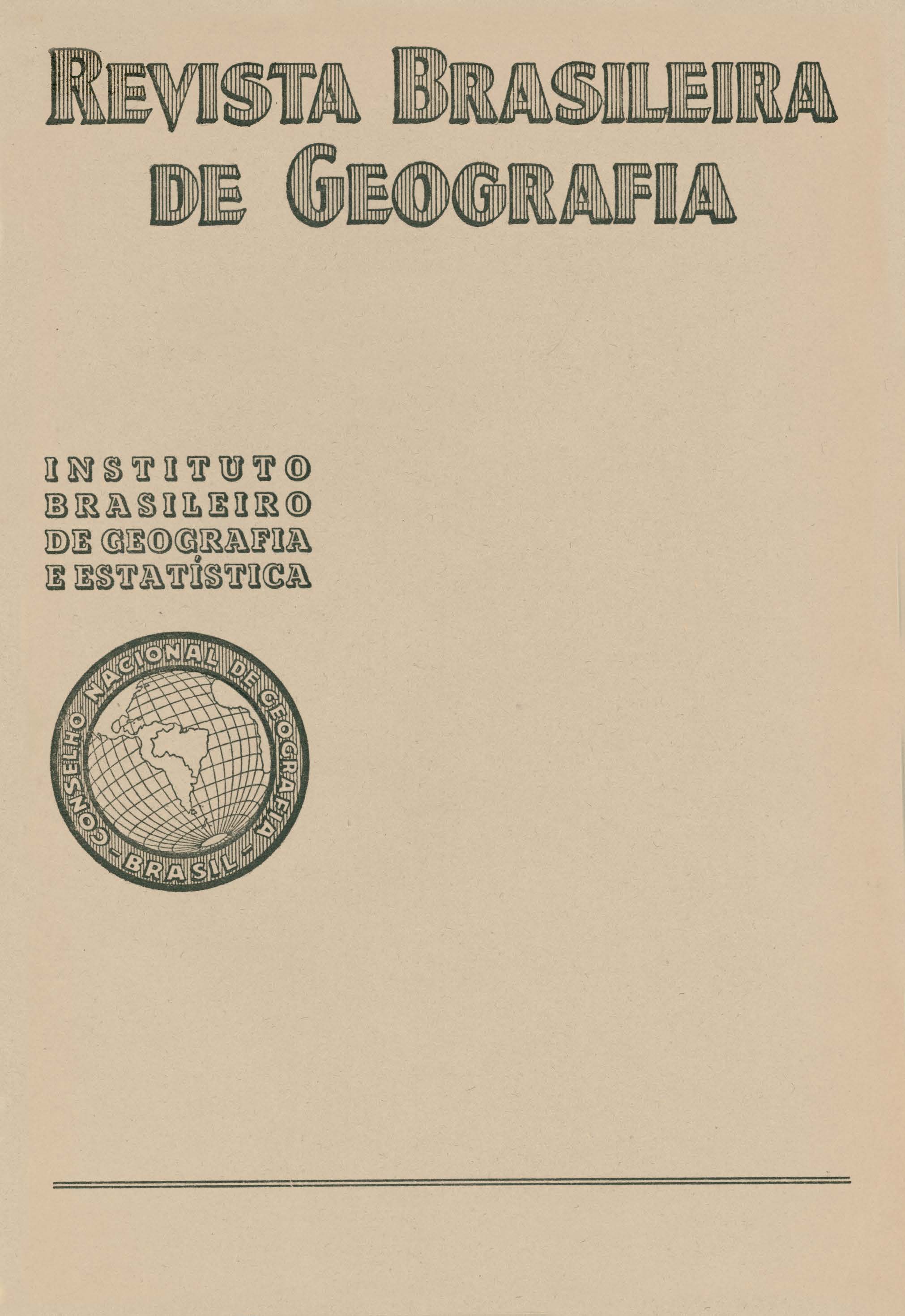Um Programa geográfico de experimentações e de pesquisas em zona tropical
Keywords:
Geografia Regional;, Geografia Física.Abstract
This article is a copy, with a few modifications of " study presented by the author to the Economic and Social Council of the United Nations. The author, Prof. Pieerre Gourou, in the light of the physical elements and human activities which are to be found in the tropics studies the possibilities of evolving more productivity and assuring the population of a higher standard of living; for it is not possible to archive the goal of world unity while such extreme differences in the way of life of the various peoples exist.
The author starts by defining what is meant by a tropical region, characterized by a combination of heat and rain; that is, the mean temperature of the coldest month is never less than eighteen to twenty degrees centigrade and the abundant annual rains are capable of supporting agriculture without irrigation The author then goes on to show that he understands the problems which obstruct or hinder the actions of man under the conditions imposed by the tropics, reviewing the different methods which have been practiced in order to overcome these natural obstacles.
He shows that no isolation, such as is actually practiced by the populations of distinct regions, can produce all the necessary advantages, whether it be with respect to the larger human agglomeration for a satisfactory and healthy standard of living, or whether it be from the point of view of utilizing the natural resources and supplying the increasing needs of the world He distinguishes, in this respect, the characteristic tropical regions which have as distinguishing features: a sparse population over large areas, their health being undermined by endemic diseases due to lack of sanitation; and scattered cultivation accompanied by burning, depletion of soils, and the like. In other words, poverty which is the reward for doing a minimum amount of work.
On the other hand, one must note the great densities of population which exist in the tropical zones of Asia, where the practice is to take complete advantage of all the land o In these parts, man has evolved a happy solution - the inundated rice paddies by which soil waste as well as malarial attacks are avoided Confronted by these examples, the author draws the conclusion that the best techniques for developing the natural resources are the kind that allow for a greater demographic concentration in the tropical regions However, such a program could not be assumed to be perfect in view of the fact that it relies almost exclusively on human labor and does not give more than a low standard of living to the population. On the other hand, this program would not be satisfactory in the development or mountainous zones In view of the knowledge acquired by a complete examination of the facts, the author elaborates on the "principles of the valorization of the hot and rainy regions" and brings out the aspects which must be analyzed when one thinks of a plan to improve these hot and rainy zones.
To complement such knowledge, a program of investigations is called for, which the author considers to be practicable if carried out under the auspices of the United Nations, who are proceeding with the defining of the boundaries of recent alluvial lands. This comparative study of recent alluvial lands and the mapping of their extent includes the forests (artificial forestation which may be homogeneous), the analysis of the problem of making use of the literates, the problem of the savannas, the experiments directed toward and perfecting the cultivation of rice on flooded ground, and the experiments in plantation methods, for which the author recommends that, of necessity, the plantations must cease to be a function of capitalistic enterprises.
In conclusion, the author interrelates the theoretical considerations about the role of civilization, in the technical sense of development as a dynamic element, through which are realized and carried out the relations between man and bis methods.






